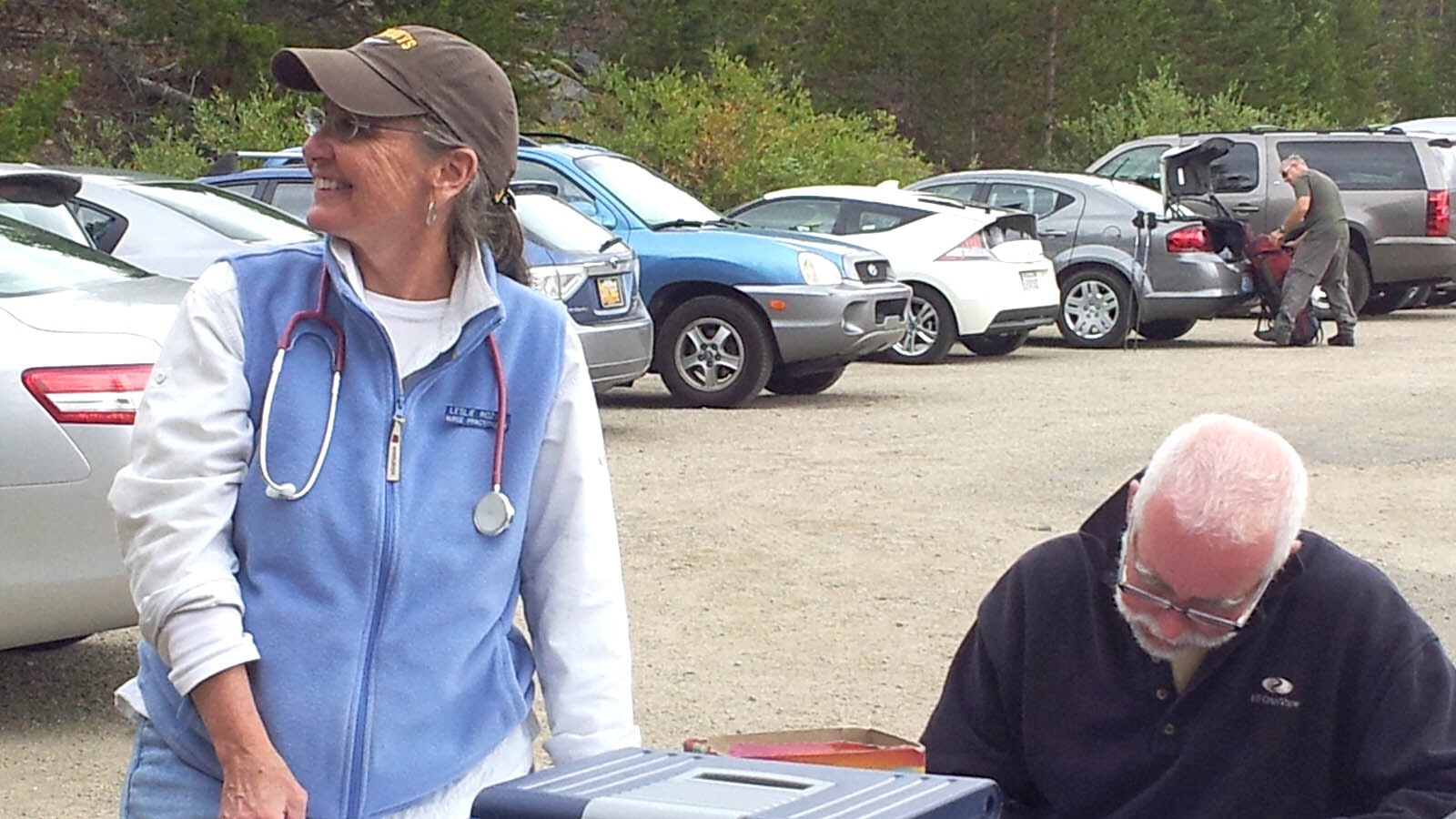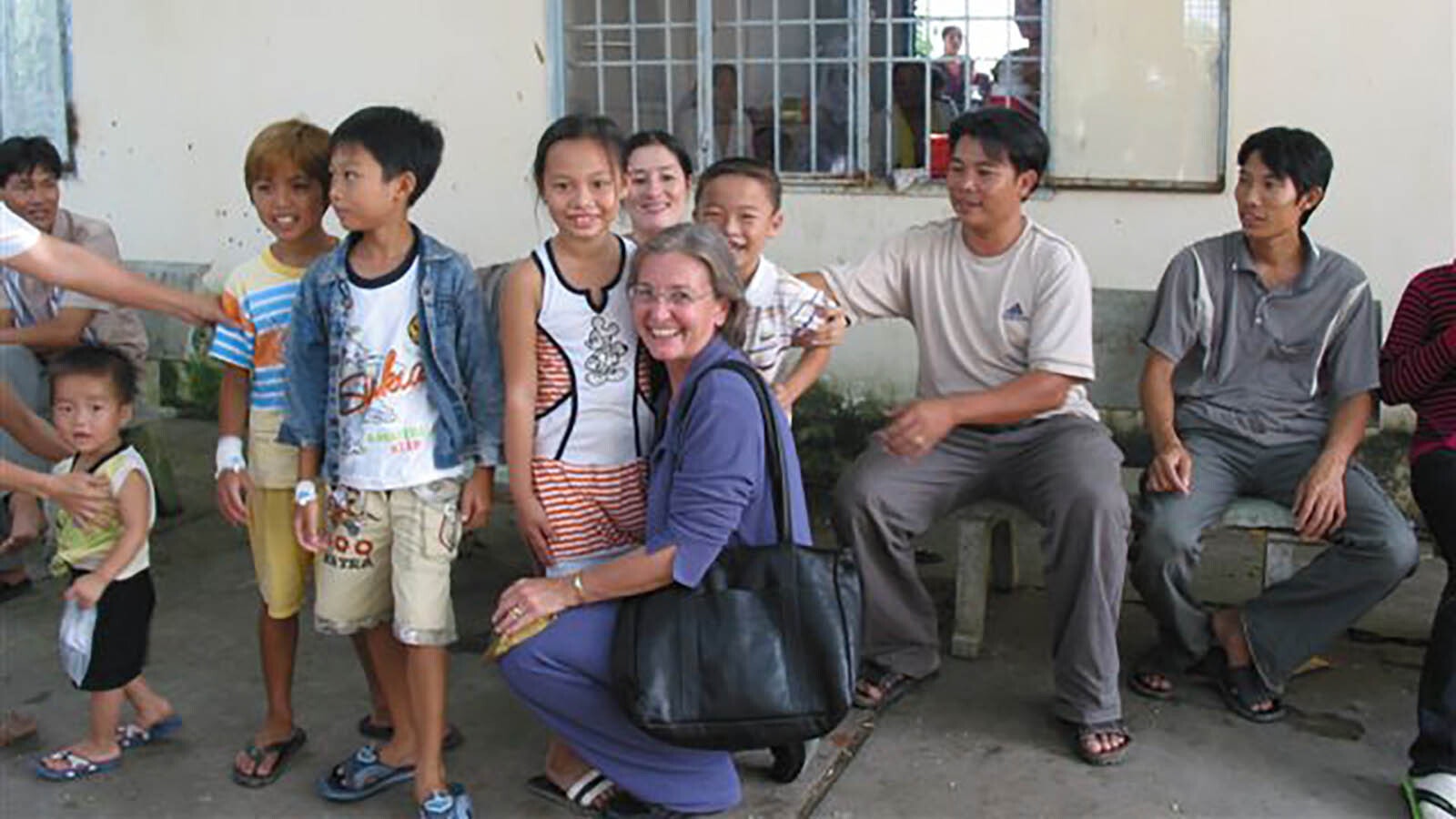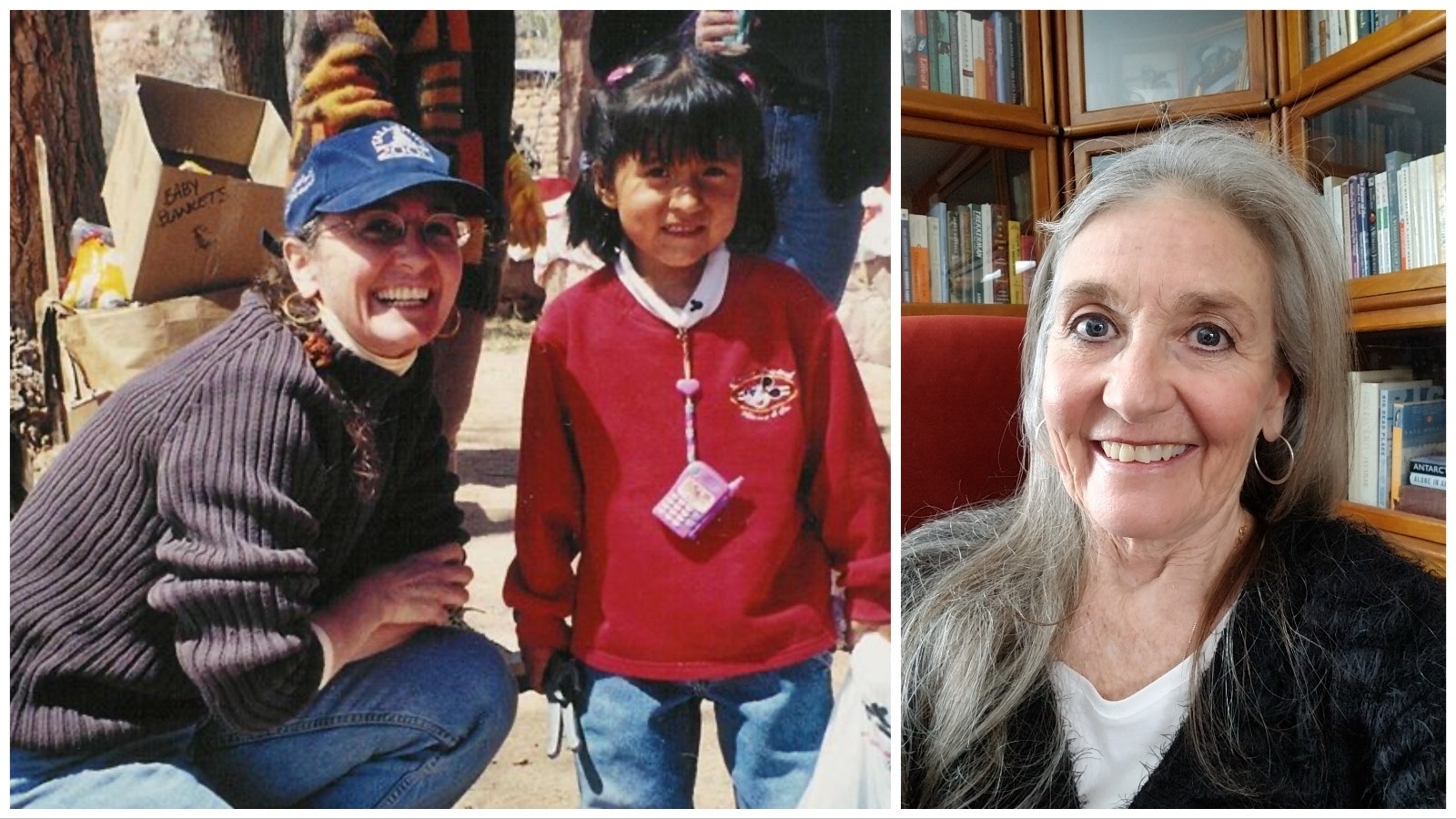Sometime in late 2007, Leslie Hagenstein, a rancher’s daughter from Pinedale, Wyoming, sat in a loaded Lockheed C-130 at McMurdo Station in Antarctica with tears streaming down her face.
As the airplane rose up over the Antarctic Range, she was about to embark on the adventure of a lifetime in a life that already had been far more adventurous than most.
Hagenstein caught a ride to South Pole Station that day and went to work filling in for a physician’s assistant. For more than 40 years working as a nurse and family nurse practitioner, Hagenstein traveled the world from the Aleutian Islands to Australia.
Until then, Antarctica was the only continent she hadn’t been to.

Full Circle
Now comfortably semiretired, energetic and vivacious, Hagenstein lives in the home she grew up in on a bend of the New Fork River, 3 miles south of Pinedale. She steps outside to tell her dogs to “quit barking at that moose.”
A drift boat with two fishermen glides by only feet from her back door.
Whip-smart and tough as the country she was raised in, by age 16, Hagenstein had completed high school. Her formal education began at Massachusetts General Hospital in Boston, where she learned nursing.
She graduated from MGH in 1975, and since has earned diplomas from the University of Colorado, University of Wyoming, Duke University (Master of Science in Nursing) and a Doctor of Nursing from the University of Utah.
She has extensive experience teaching and has presented research on the acclimatization practices of high-altitude recreationists and the hydration status of backpackers at high altitude.
Among the saddest moments of her career came during her three-month stint at the South Pole when she witnessed scientists and other workers who could not acclimate after the three-hour flight from McMurdo Station at sea level to the 9,300-foot elevation at the South Pole.
“They were sent back to McMurdo without an option for a return,” Hagenstein wrote in an MGH Alumni Association newsletter. “Fellowships and research projects were canceled and lives were redirected.”
“I cried with them,” she said in a subsequent interview with Cowboy State Daily.

Alaska Adventure
Hagenstein talked extensively about time spent as a nurse practitioner in Akutan, Alaska, an island in the Aleutian Chain. She worked on call, 24/7 for 16 months straight.
Writing for the MGH alumni newsletter, Hagenstein shared the following: “My job with the Eastern Aleutian Tribes was to provide health care to the residents of the village, 800 miles from a physician or hospital. I was the village nurse practitioner, but in reality, I was the mental health counselor, public health nurse, school nurse, social worker, pharmacist, dentist, optician, city sanitarian, clinic plumber, flight surgeon and veterinarian.”
Fishing in the Bering Sea is one of the most dangerous jobs imaginable. One day an inebriated fisherman ran his boat into a dock piling, fell overboard and drowned.
He was rescued, resuscitated and taken to the clinic, but it was too late to fly him out. Hagenstein said his diaphragm was blown out and his stomach had climbed up into his chest cavity. He had a crushed pelvis and two broken femurs.
He lived through the night despite limited pain medication. They had to get industrial oxygen from a local crab processing plant to keep him breathing.
“During the flight to Cold Bay, I remember looking down and seeing 30-foot waves on the Bering Sea and thinking, ‘My God, what am I doing here?’” she said.
The fisherman ended up making a full recovery. A couple of years later, he pulled someone out of a burning house, she said.
She treated another injured fisherman who chopped the ends off of six fingers using a machine used to remove fish heads.
The boat was six hours away when the accident happened. They called her on a satellite phone, and she conducted triage over the phone. They iced the amputated digits, gave him antibiotics and pain medication on the boat.
But that was about all they could do for him in Alaska. He needed a vascular surgeon, and the closest one was in Seattle.
The Aleutian Islands are a difficult place for aviation to say the least. You can only fly when the weather allows. But about 24 hours later his fingers, save one, were all back in place and good to go.
He ended up losing one finger because of a previous injury that limited circulation, she said.
“A lot of the time you just have to do the best you can with what you’ve got. This was a rare circumstance. He was lucky,” she said.
It Really Takes A Village
Living in an Alaskan village was a unique experience. She said everything is shared.
Her husband at the time, Rod Rozier, needed a fishing license. He went to the village elders, who told to him bring back some fish and give them to the elders. What they take is the cost of your license and you can keep the rest.
“In Alaska, we lived and breathed their culture even though we still felt like outsiders,” she said.
It took time to gain their trust, but once that happened there was always fresh fish for everyone in the village. She baked a lot of loaves of fresh bread and shared it in the village, which helped get a foot in the door of many homes.
“I spent more time in homes there than I did in the clinic,” she said. “We drank a lot of coffee, and it was bad coffee, but it got so everyone took care of everyone else. That’s life in an Alaskan village.”

Professional Globetrotter
After her Alaska adventures she came back to Wyoming and decided to start a business that helps fill in for medical professionals who work in remote areas when they need a break. Locum tenens (what they call it in the medical field) is a Latin term that means to hold the place of, to substitute for.
“The work can be intense and stressful and it’s important to provide people with a break from it,” she said.
Starting that business, she said, “opened (the) aperture,” creating new opportunities to travel to rural locales around the globe. This new business is what landed her at the South Pole, among many other places.
“When I came off Aleutians, I said I’m going to develop a business so I would go back to Cold Bay and King Cove for a couple weeks at a time to give them breaks and get them off the rock,” Hagenstein said. “It was a service that was needed. When you’ve been up all night with an injured crab fisherman it’s intense, you need a break.”
Wyoming Still Home
In spite of all the travel, Wyoming always drew her back. She describes it as a deep taproot that is set here on this ranch outside Pinedale.
Her work in the clinics in Pinedale and Big Piney helped cultivate a new interest in acclimatization in high-altitude recreation.
“We were regularly flying people out of the Wind River Range with pulmonary edema,” she said. “We got interested in doing research on why people are not acclimatizing when they come here, and I made a lot of new connections. Next thing I know, I’m presenting that research in Prague.”
She explained that people often come here from lower elevations and don’t take the time needed to get used to the elevation. It’s most common among young men who come into town, have a few too many beers the night before and then head up to camp in the wilderness.
Soon thereafter, they’re experiencing wicked headaches, nausea, they don’t want to drink water or eat, and can’t sleep because of shortness of breath.
The research has been well received in many places where mountaineering is popular. Social media, along with outdoor publications, have been key in sharing the information.
“A lot of this stuff has happened for me just by chance, but your aperture has to be open enough to see those opportunities,” she said. “Over time I think we’ve gotten better at acclimatization.”
Logging The Miles
In all of her travels, Hagenstein may have set a record for being stuck in airports. She can sleep about anywhere. A credit card, driver’s license, a jar of peanut butter and some crackers is about all she needs.
Places she would happily return to include the South Pole, Norway, Iceland, Scotland, Thailand, Cambodia, Australia, New Zealand and parts of South America that are near mountains.
“I loved the Aleutians too, but I would not go back there by myself,” she said. “It’s not safe for a woman alone there.”
Places she has no desire to visit again include Indonesia, Vietnam and the whole continent of Africa, except for South Africa.
“Overcrowded places are difficult for me, and I prefer northern climates where it’s cooler,” she said. “Teaching 300 people on the top floor of a building that you’re not sure has any rebar in is scary.”
Although she is reluctant to give up her nursing certification, she’s happy to be semiretired in her home next to the New Fork. She is grateful that her parents encouraged her “to shoot for the moon.”
“It’s been a speeding train and now I’ve been dropped off at the station,” she said. “I have a lot of books to read, and I love getting up at 5:30. I call it my time to ponder. I’m ready to let go of it and I say 70 is my cutoff point, but I’ll probably volunteer for the rest of my life to keep my nursing license.”
Contact John Thompson at John@CowboyStateDaily.com







